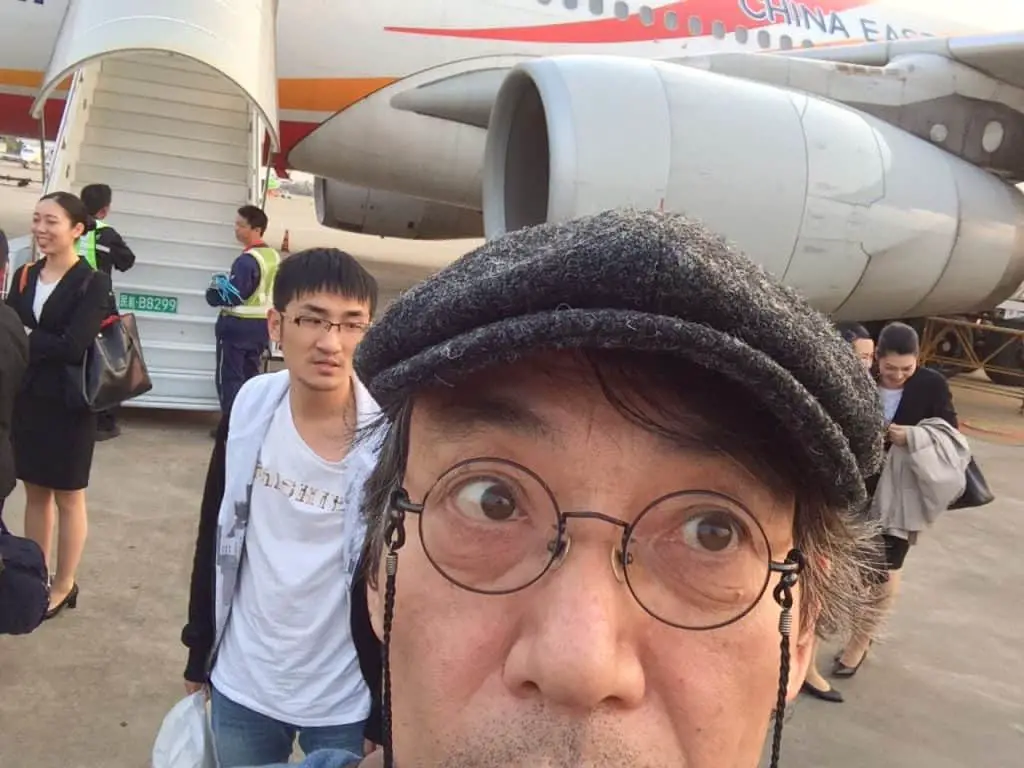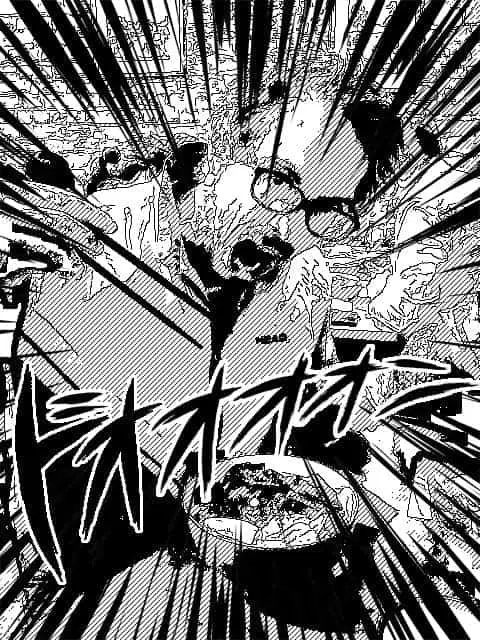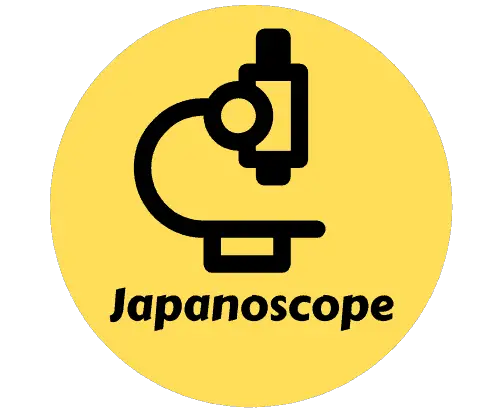Podcast: Play in new window | Download
Here I present my translation into English of the opening theme song from Midnight Diner Tokyo Stories (Shinya Shokudo) soundtrack, Omoide, by Tsunekichi Suzuki. You’ll find a pretty extensive background on Suzuki and the composition process behind the song below.
If you want to see a complete list of the songs used in the Tokyo Stories soundtrack go here.
I’ve also done English translations for the Midnight Diner Closing Theme by Magic Party, Believe In Paradise, translations of songs used in Midnight Diner by Kimie Fukuhara and the wonderful Ikataribattari by Suemarr.
But first thing’s first…
Who sings the opening theme song on Netflix Midnight Diner Tokyo Stories?
The opening song for Midnight Diner Tokyo Stories (深夜食堂 Shinya Shokudo) is the song Omoide 思ひで by Tsunekichi Suzuki. It was first released on his 2006 album ぜいご Zeigo.
Omoide Meaning
Omoide means “memory”, “recollection” or “reminiscence”. It can also mean a “keepsake” in certain circumstances.
In the song Omoide, the hiragana used to spell out the song name use an archaic form 思ひで rather than 思い出, giving the title a sense of nostalgia and whimsical longing for the past.
Where Can I Buy Midnight Diner Tokyo Stories Soundtrack & Theme Song?
The Midnight Diner Opening Theme Song Omoide first appeared on Tsunekichi Suzuki’s album Zeigo. You can find it on Amazon here:
There is a soundtrack album that goes by the name “Shinya Shokudou No Uta”, which means “The Songs of Midnight Diner”, which includes the opening song Omoide:
Tsunekichi also released a live album, Always Lucky, featuring live versions of his most popular songs, including Omoide.
Zeigo and a Midnight Diner Soundtrack are also available from Amazon’s Japanese site:

| Approx Japanese level | Themes | Text Type |
| JLPT2, JLPT3 | Impermanence | Lyrics, Songs In Translation |
Background To Midnight Diner Song Omoide and Tsunekichi Suzuki
In 2015, Japanese singer-songwriter Tsunekichi Suzuki wrote on his blog about how he left his home country at the age of 61 to go on an adventure to China. The trip was one of a handful of international music tours he made in his life, a life which would end just five years later in 2020.
Tsunekichi’s blog describes how, after a soundcheck for one of his Chinese tour dates he went to have a cigarette on the street and a youth waiting outside asked him “is this where Tsunekichi Suzuki is playing tonight?”
Tsunekichi told him it was. The young person asked “is Tsunekichi Suzuki famous in Japan, like he is in China?”
Tsunekichi just mumbled ineffectually. He didn’t really know what to say.
Later, on his blog, Tsunekichi said “I should have just told the young man straight out, no Tsunekichi Suzuki is not famous in Japan…None of the people waiting outside the gig knew it was me they had come to see. I thought it had been suspicious when people told me I was popular in China”.

Tsunekichi Suzuki and Midnight Diner
But the truth is, he had become kind of big in China, and in Korea, and in several other countries to boot. He had achieved this level of international notoriety because of a TV show called Shinya Shokudo in Japan but you may know the show by it’s Netflix international release name “Midnight Diner”.
Midnight Diner uses several of his songs in its soundtrack . If you don’t know the show, it’s set in a wood-paneled Tokyo bar, that caters to a midnight to morning clientele of colourful fringe dwellers.
The show opens with a long sequence of the bright downtown lights of Tokyo, sans street noise. The footage is strikingly off-set to Tsunekichi’s gentle acoustic Irish Folk influenced song “Omoide” or Remembrance.
This was the proverbial 2nd wind for the singer. A significant time had passed since Tsunekichi had first experienced a fairly short, but intense, few weeks in the national spotlight in 1989. His band, Cement Mixers, had appeared on the TV show “Ikasu Bando Tengoku”. They sounded like this.
Tsunekichi Suzuki & Cement Mixers on Ikaten (いかすバンド天国)
The TV show’s title Ikasu Bando Tengoku いかすバンド天国 translates as “Cool Band Heaven”, and it was kind of like bandstand meets battle of the bands meets eurovision, but read right to left, Japanese style.
This show was a phenomenon in Japan and coincided with what came to be known as the バンドブーム “Band Boom”, where young groups playing guitars wrested prominence for a time from the studio manufactured “idols” that dominated the charts of the second biggest music market in the world.
The Ikasu Bando Tengoku show even got it’s own shortened nickname いかてん“Ikaten”, which had particular out of left field resonance with the word “Ikaten” also meaning “Deep fried Tempura Squid”. Many of the bands grew out of the 歩行者天国Hokosha Tengoku “pedestrian paradice” scene of Tokyo’s trendy Harajuku district where 100s of bands would perform on the street on the weekends. This scene had its own nickname too, the “Hoten”. The two “tens” Ikaten and Hoten became inexorably entwined. Now all the record indie execs had to do to scout their next big thing was to take a trip down to the swinging parklands of Tokyo and literally pick a band off the street.
The whole thing didn’t last though, because the good residents of Harajuku didn’t take so well to their neighbourhood becoming a default outdoor live band arena where the music and wacky fashion raged 24/7. The Ikaten program was taken off the air at the end of 1990 and the bands were largely turfed out of the streets of Harajuku. In 1991, the bubble of the Japanese economic post war miracle came to an end and ushered in what is now known as the 失われた10年 “Ushinawareta 10 nen”, or the lost decade.
You can watch a 2007 television program looking back at the Ikaten program here:
Post-Ikaten Tsunekichi
It seems Tsunekichi’s hopes of superstardom were also lost somewhere along with those ten years, after his band released one album on a major label, to some critical acclaim, and promptly broke up. He formed another band つれれこ社中Tsurereko Shachu, which managed to release one album later that decade, in 1997. Tsunekichi wasn’t to reappear greatly in the public consciousness again until his 2006 solo album ぜいご Zeigo, which was lauded by one of the songwriters I’ve translated here in the past 高田渡 Wataru Takada. The album was ultimately picked up to form the raw materials of the soundtrack to the Midnight Diner tv show many have now watched on Netflix around the world.

Omoide’s 18th Century Irish Folk Origins
One of the strange circularities of this story is that the song Omoide, featured in the opening scenes, is itself based on an 18th century folk song from another island people half way across the world. It is essentially a re-working of the catchily, and perhaps pastorally racily, titled Irish folk song “A pretty girl milking her cow”. Judy Garland made the song world famous by singing it in the 1940 movie “Little Nellie”.
A Pretty Girl Milking Her Cow Lyrics
The English version is attributed to Thomas Moore (1779–1852)
It was on a fine summer’s morning
The birds sweetly tune on each bough
And as I walked out for my pleasure
I saw a maid milking a cow
Her voice was so enchanting, melodious
Left me quite unable to go
My heart, it was loaded with sorrow
For the pretty maid milking her cow
Then to her I made my advances
“Good morrow most beautiful maid
Your beauty my heart so entrances”
“Pray sir do not banter,” she said
“I’m not such a rare precious jewel
That I should enamour you so
I am but a poor little milk girl,”
Says the pretty maid milking her cow
The Indies afford no such jewel
So bright, so transparently clear
I do not add things to my funeral
Consent but to know me my dear
Oh, had I the Lamp of Aladdin
Or the wealth that gold mines can bestow
I’d rather be poor in a cottage
With the pretty girl milking her cow.
An interesting aside about this song for Australians is that this song was apparently sung by Jack Jones, teenage son of Anne Jones the publican of the Glenrowan Inn (Victoria, Australia) while it was under siege by the famous Ned Kelly Gang bushrangers.
Tsunekichi’s reworking of the Irish tune
Tsunekichi gives the song about girls milking cows a much more ethereal feel, and an ephemeral theme. Here it becomes a Japanese musing on the impermanent nature of things, as the song’s protagonist muses on such questions as what becomes of a breath once it is exhaled, and if you pierce through the sky and the clouds, do you find another sky and clouds waiting there beyond?
I’ll let you ponder those questions as you listen to these Japanese and English versions of the song Omoide, or “Remembrance”.
Omoide Lyrics and Translation
君が吐いた白い息が
kimiga ha i ta shiroi i kiga
今ゆっくり風に乗って
ima yuku ri kazo notte
空に浮かぶ雲の中に
sorani ukabu kumo no nakani
少しずつ消えてゆく
sugo shi zuttsu kiete yuku
遠く高い空の中で
tōku takai sorono naka de
手を伸ばす白い雲
tewo no ba su shiroi kumo
君が吐いた息を吸って
kimiga ha i ta ikio sute
ぽっかりと浮かんでる
pok karito ukan deru
ずっと昔のことのようだね
zutto mukashino kotono yō da ne
川面の上を雲が流れる
kawa mono u e o kumo ga naga re ru
照り返す日差しを避けて
teri kae su hizashi o sa ke te
軒下に眠る犬
noki shita ni memoru i nu
思い出もあの 空の中に
omo i de mo a no sora no nakani
少しづつ消えてゆく
sugo shi zuttsu kiete yuku
この空の向こう側には
ko no sorano mukō-gawa ni wa
もうひとつの青い空
mō hitotsu no aoi sora
誰もいない空の中に
daremo i na i sorano nakate
ぽっかりと浮かぶ雲
pok karito ukanbu kumo
ずっと昔のことのようだね
zutto mukashino kotono yō da ne
川面の上を雲が流れる
kawa mono u e o kumo ga naga re ru
君が吐いた白い息が
kimiga ha i ta shiroi i kiga
今ゆっくり風に乗って
ima yuku ri kazo notte
空に浮かぶ雲の中に
sorani u ka bu kumo no nakani
少しずつ消えてゆく
sugo shi zuttsu kiete yuku
少しずつ消えてゆく
sugo shi zuttsu kiete yuku
See your pale breath floating over there
As it slowly drifts off in the air
See it billow into the clouds in the sky
And vanish before your eyes
See the white clouds reaching out there hands
In the sky so far above the land
Breathing in the air you breathed out
Rolling on, Rolling On, Rolling On
And do you remember
The clouds streaming by ‘bove the river?
And didn’t they look just like this?
Or maybe my mind plays tricks
And do you remember the glaring sun
And the dog sleeping there ‘neath the eaves
And all of these memories
Fade into the sky as they leave
On the other side of the sky
There’s another sky there so blue
There’s not a single soul or a sound
But there’s a rolling, rolling cloud
And do you remember
The clouds streaming by ‘bove the river?
And didn’t they look just like this?
Or maybe my mind plays tricks
See your pale breath floating over there
As it slowly drifts off in the air
See it billow into the clouds in the sky
And vanish before your eyes
And vanish before your eyes
What is Midnight Diner Shinya Shokudo?
Shinya Shokudo is originally a Manga. It has appeared in the Big Comic Original in serialized form since 2006. It was later turned into serialised and movie screen adaptations.
Where Can I Read Shinya Shokudo in English?
Many editions of the comic have been translated here on the Internet Archive.
Where can you buy shinya Shokudo Comics?
Shinya Shokudo are available in the original Japanese from Amazon Japan here.

Where Can You Watch Midnight Diner Shinya Shokudo ?
?
You can watch Midnight Diner Tokyo Stories on Netflix, or you can buy it out right on Bluray here:
Are there Midnight Diner Cook Books?
There’s not an official Midnight Diner Cook Book available at the moment, but there are several books that feature similar recipes:
Or if you can read Japanese you could try these:




Midnight Diner Merch
Want some Midnight Diner On Your Wall? Cool, a t-shirt of the sign on the Midnight Diner restaurant ”めしや” “Meshiya”, which is a colloquial term for “restaurant”. Simple & understated. Nice.
Or give the Midnight Master some love.
I’ve also done manga & anime related translations/investigations of songs such as Gurenge from Demon Slayer Kimetsu No Yaiba, and Laputa Castle in The Sky Theme Song or visit my Youtube channel here.
Japanoscope is a registered affiliate with several online shops and may receive a commission when you click on some of the links within content.
Who is behind this site?

I’m Peter Joseph Head. I lived in Japan for four years as a student at Kyoto City University of the Arts doing a Masters Degree, have toured the country six times playing music and speak Japanese (JLPT N1). I’ve written songs in Japanese and have released several albums through Tokyo label Majikick Records. You can hear my music at my bandcamp page:
ピータージョセフヘッドです。4年間京都市立芸大の大学院として日本に住み、6回日本で音楽ツアーをし、日本語能力試験で1級を取得しました。要するに日本好きです。
僕の音楽はBandcampで聞けます。













